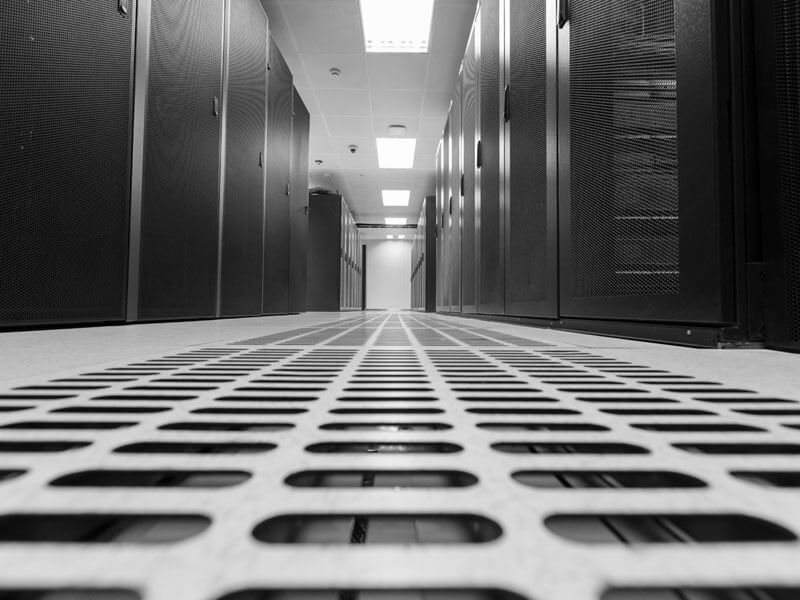Using the right digital continuity solutions to manage edge sites is more important than ever.
High-speed internet, pervasive wireless, and companies’ drive to expand and digitize their businesses have helped fuel the growth of edge sites. Companies and utilities have stood up branch and remote offices, IT closets, and radio and cell towers to support anytime, anywhere businesses and connected consumers.
Due to recent industry disruption, employees have traded twice-daily commutes and office work for working at home. Companies have struggled to evolve their businesses in real-time, addressing surging use of virtual private network (VPN) connections, cloud services spikes (driven in part by video meetings and online collaboration tools), security risks, and increased help desk calls for hardware and software support. Similarly, internet providers have needed to escalate support for residential connectivity services, as so much of the world’s work has been happening not from the corner office, but from the home office.
In addition, data centers have gone portable. Responding to heightened business and customer needs has placed additional stress on companies such as telecommunications and entertainment providers, hospitals, and financial services firms, that require ultra-low latency for critical processes. These companies are popping up small data centers in containers outside key buildings or in other high-demand locations. These edge sites ensure continuous connectivity, supporting business requirements and delivering a better customer experience.
The New Wisdom on Managing Edge Sites
So, what’s new about managing edge sites that companies, utilities, internet providers, and other firms need to be mindful of as they navigate through this season and beyond?
-
Remote work is here to stay. A recent Gartner survey found that nearly half of all organizations had moved 81% or more of employees to a remote working model. Some may never return, as chief financial officers leverage remote working to control costs, drive workforce productivity, and meet talent needs for more flexible work styles. This means that telecommunications providers will need to continue to expand and evolve their edge-site capabilities to support these home-based workers.
-
Edge sites keep your staff productive. At headquarters and other offices, companies have evolved networks to provide much-needed redundancy to improve disaster recovery. As offices and data centers empty out and are maintained by a skeleton staff, companies are at increased risk for infrastructure and VPN outages. If they occur, the entire workforce could quite literally be taken offline. Similarly, if home-based workers have Wi-Fi issues, they may not be able to connect to company systems. The world’s companies, utilities, and telecommunications providers have a shared responsibility to keep businesses up and functioning. Edge sites can help provide the connectivity businesses and workers need to stay productive.
-
Edge sites may not provide physical access. We have heard from some of our customers that access to colocation data centers is no longer guaranteed. Similarly, edge sites may close off access to non-core staff or move to a remote management model to protect staff health, safeguard the physical and environmental integrity of equipment, and allow talent to focus on other duties. Centralized management software and remote monitoring and management solutions can literally let sites “go dark,” operating independently without lights or staff. Companies that haven’t yet equipped edge sites with these capabilities will likely want to move swiftly to do so, to ensure their continuous operations.
-
Edge sites will continue to grow. Today’s industry pressures and telecommuting growth are colliding with global business needs such as digitization. This is happening concurrently with growth in corporate and personal endpoints, ranging from sensor-connected equipment used in Internet of Things (IoT) deployments to increasing use of cloud services and business applications. All of this digital transformation adds up to greater business and individual consumer needs for ultra-fast, ultra-predictable connectivity. As a simple example, think of a chief executive officer who’s now running a global business at home, using multiple devices to manage a constantly changing business and dispersed workforce. Any outage of any length would compromise the CEO’s ability to make decisions and execute.
-
Edge sites need to evolve for additional functionality and better serviceability. Before 2020, many edge sites performed a supportive role. They were valuable, but not always mission-critical. Now, they’re an important part of companies’ operational resilience and future growth plans. Companies, especially telecommunications providers, need to make sure that edge sites have intelligent functionality for detecting all attempts to access the site or its equipment, providing an uninterruptible power supply and cooling to critical assets, distributing electrical power among equipment, rebooting equipment correctly when needed, providing site leak and moisture detection, and monitoring overall equipment health, among other requirements. Early detection of issues can help staff move proactively to address challenges, such as moving to battery power, sending technicians in for proactive repairs, or switching traffic to another site as equipment is replaced. In addition, rack-based equipment helps set up sites for efficient servicing and ongoing management at more technology-intensive sites.
-
Remote monitoring services keep edge sites functioning. IT staff can use a single pane of glass to monitor all sites remotely from the comfort and safety of their own homes. While global companies have access to robust centralized management software, small businesses may not need such comprehensive functionality. These companies can access a tool for online remote monitoring and management of all edge devices, putting these capabilities within reach and in-budget.
-
New tools are needed to make sense of data. With the growth in edge sites and endpoints, IT teams will be bombarded with alerts and alarms. IT management tools can use predefined protocols to automate emails to key staff, tier incidents for prioritized resolution, and create end-to-end digital workflow, enabling IT teams to work more effectively.
While current industry pressures are increasing stress on IT costs and enterprise costs, they also provide an opportunity to rethink business for the world of remote work, unpredictable demand spikes, pervasive connectivity, and intelligent operations. Vertiv can help you strategize how to set up your edge sites for success; strengthen your business continuity and disaster recovery with the right equipment; and use new tools to increase visibility, control, and proactive response. In addition, we stand ready to support your business-critical operations with ongoing remote monitoring and management services, should you need to redeploy IT staff on other essential duties.
If you need strategic advice, technical solutions for edge sites, or ongoing service, please contact your Vertiv representative.






